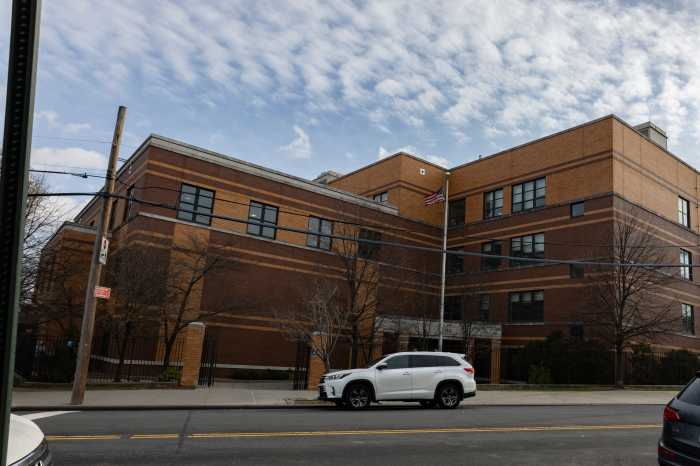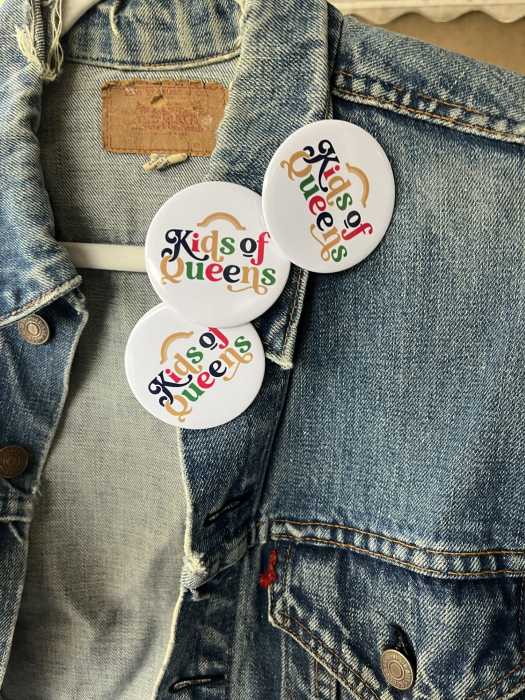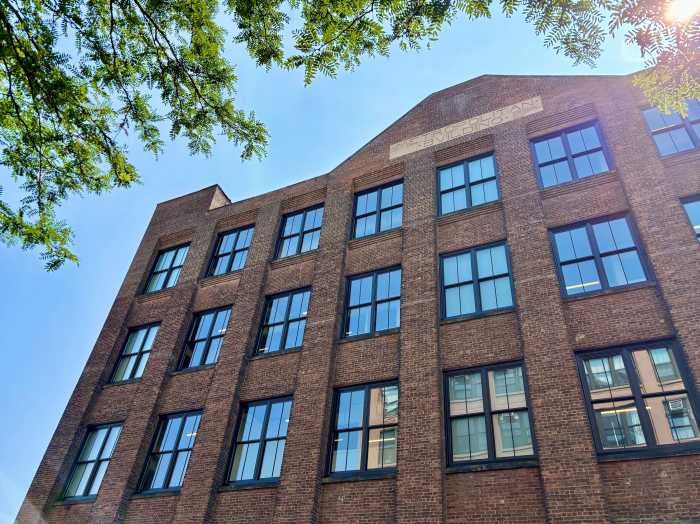If any entrepreneur or developer needs proof that being a good neighbor is also good business, they need look no further than Cord Meyer Development Corp. and their Bay Terrace Shopping Center.
The destination retail complex at Bell Boulevard and 26th Avenue in Bayside started out nearly 50 years ago as a row of stores on what was once farmland in a dell.
Several times over the years, Cord Meyer expanded, renovated and replaced structures, until Bay Terrace grew to a multi-level shopping, dining and entertainment complex that encompasses parking for more than 1,500 cars.
The latest addition, two structures adding more than 20,000-square-feet, was first announced last July. In the face of a difficult economy, the newly-completed addition boasts one high-profile restaurant, Tony Roma’s, already opened, and another, Five Guys Burgers and Fries, signed to occupy another space.
The neighborhood that has since grown up around the once-pastoral acreage is not to be trifled with – it varies, from blocks of single family homes, luxury high-rise condominiums and townhouses to a gated community.
In the midst of an informed, civically-active populace, one might think that creating a bustling shopping center with more than 300,000-square-feet of commercial space might prove a difficult task.
Yet, when Cord Meyer went to the local Community Board with plans for a major expansion in the early 1990s, their proposal sailed through – with 42 in favor and only 2 opposed. How do they do it?
“We built up good will by listening to people,” said Anthony Colletti, Chief Operating Officer (COO) of Cord Meyer Development. “We go to local meetings and we respond to public concerns,” he said.
Marilyn Bitterman, the current District Manager of Community Board 7, confirmed that if anything, the passage of time has only improved Cord Meyer’s reputation in the area.
“Any time I’ve reached out to them, they’ve been there,” she said without hesitation. “They’ve always been very responsive to the neighbors, she said, adding “They’ve always been good corporate citizens.”
Colletti, who has been with Cord Meyer Development for nearly 26 years, as comptroller before taking over as COO 10 years ago, revealed that their reputation was no accident.
“Good corporate citizenship is an ideal we impress on everyone here, from the CEO to the office staff,” he said.
The idea of good corporate citizenship was already in place in the late 1800s, when Cord Meyer, Jr. went into the real estate business in partnership with brothers Christian and John.
By the 1890s, Cord Meyer, a German immigrant who had already made his fortune in Brooklyn, realized that Queens would not long remain an expanse of woodlands and farms, a preserve of wealthy landowners.
At the time, much of central Queens was known as Newtown, and the largest landowner was Englishman Samuel Lord (founder of Lord & Taylor stores.) In 1893, Meyer bought Lord’s estate in Newtown.
Even in those early days, he realized that sharing a name with the Newtown Creek, which was already surrounded by factories and delicately described as “malodorous,” was a marketing disadvantage.
Establishing the principle that good stewardship was good business, Meyer constructed sewers and streets, which would eventually be planted with Elm trees. He renamed the area “Elmhurst,” and sold off lots for development.
In 1899, the partnership became a corporation: The Cord Meyer Company.
Five years later, Cord Meyer Development Corporation purchased 600 acres of farmland southeast of Elmhurst, on high ground overlooking Forest Park.
That tract, formerly known as Whitepot, became Forest Hills.
By 1906, some of the very first row houses built by Cord Meyer Development were for by the area’s first plumbers, electricians and carpenters. Later, the company provided a house to serve as a place of worship for a growing Catholic population.
Again, Cord Meyer Development followed the lead of its founder and president; creating a planned, “upscale” community with main thoroughfares (Ashland and Continental Avenues) which aligned with the city’s street plan for surrounding areas.
When the company sold off a section south of what is now Queens Boulevard to the Russell Sage foundation for the development of the exclusive enclave of Forest Hills Gardens, good corporate citizenship was still in evidence.
Although the streets of Forest Hills Gardens are actually private thoroughfares, a condition of the land sale was that through-traffic would be allowed, although non-resident street parking was restricted.
The benefactor of the foundation, Margaret Olivia Slocum Sage, shared Meyer’s vision – the foundation and the corporation jointly developed a breathtaking commuter hub for the Long Island Rail Road. Landscaping in the area was designed by the nephews of Frederick Law Olmstead, the designer of both Central and Prospect Parks.
For decades, Cord Meyer Development focused on its residential buildings.
“In the 30s, 40s and 50s, that was almost their entire focus,” Colletti said. He would be in a position to know. Prior to joining Cord Meyer as its comptroller, he audited the corporation’s books for their accounting firm.
“They weren’t terribly profitable,” he explained. “They were doing things that less scrupulous landlords weren’t doing – they had the buildings insured and kept on top of maintenance both of the buildings and the grounds.”
“I got the feeling they were wealthy people who wanted to sleep well at night, so they did the right thing,” he said.
“When converting rentals into co-ops became popular, Cord Meyer did realize a tidy profit, enabling them to do the commercial development they wanted,” Colletti recalled. “I think the shareholder boards were a little surprised with their income distributions,” he surmised.
After developing residential properties in Forest Hills for 40 years, Cord Meyer Development has returned to the neighborhood, with construction of the 22-story Windsor at Forest Hills, at 71st Road and Queens Boulevard.
“They voted to grant us a zoning variance so we could build a larger structure,” Colletti said. “They know they can trust us.”
Cord Meyer’s view of good corporate citizenship continues to look beyond the bottom line.
Last winter, when local residents expressed concerns relating to the Waldbaum’s supermarket in the Bay Terrace Shopping Center, Cord Meyer set up a meeting with store management and the local civic group, the Bay Terrace Community Alliance. Colletti personally attended the meeting with Mary Hughes, Cord Meyer’s vice president of leasing.
“They’ve been very good to us,” said Phil Konigsberg, first vice-president of the group. “They listened and took notes,” Konigsberg said, “Hughes told us what was going on with new stores coming in. When people asked for things they couldn’t do, they explained their position,” he said.
At the meeting, Hughes revealed details that had the neighbors wondering – such as that the opening of Panera Bread, slated for early summer, was delayed on account of permit issues with the city, but was proceeding nonetheless. The store, on Bell Boulevard, is now on track to open as soon as construction is completed, probably before summer’s end, Colletti said.
He sees nothing unusual about being responsive. “We’re very high on the neighborhood, we want them to know that we are here and we’re going to be here for them,” he explained. “There are things we could do that would be more profitable, but it wouldn’t be good for the neighborhood.”
“We could have gone the Americana route,” Colletti explained, a reference to the former “Miracle Mile” shopping center in Manhasset, which drove its their Waldbaum’s tenant in favor of higher-paying retail stores. “That wouldn’t be good for the neighborhood and it wouldn’t be good for our other tenants,” he said.
“We consider ourselves partners with our tenants, no matter what they do,” Colletti declared, observing that after months of fits and starts, Cord Meyer and Ben’s Deli worked out their differences and the kosher capital of Bayside kept its location.
Other tenants, such as Beginnings Bleus, the apparel store for men women and children, have relocated within the shopping center.
Billing itself as “the ultimate jeans store,” they moved from “the bottom of the stairs,” on the main level, to “the top of the stairs” along 26th Avenue, near the new buildings. “That was a good move for them, and for us,” Hughes said.
“We’ve encouraged a range of tenants, to serve the range of customers living in the area,” Hughes said – perhaps an understatement, with a range of apparel offerings from Ann Taylor Loft to Victoria’s Secret and Men’s Wearhouse to American Eagle Outfitters.
Cord Meyer Development has also engaged in a range of community support.
When the operator of a medical office on the residential side of 26th Avenue tried to get the city to install parking meters, they sided with local residents who opposed metered parking on a residential street.
“They supported us and we appreciate it,” Konigsberg said.
The alliance sponsors an annual “I love Bayside” poster contest for local schoolchildren. “Cord Meyer takes the winning designs and has them made into banners that they fly from flagpoles at the entrance to the shopping center,” he related.
“For the size of the company, it’s good to see they are in tune with the community,” Konigsberg said.
Cord Meyer Development is in tune with more than Bayside. Hughes’ assistant, Andrea Betz, spends a respectable amount of her time processing charitable requests.
“You’d be amazed how many we get,” she said, ticking off part of the list, that includes a number of public and private schools, the Queens Library Foundation, Saint Mary’s Hospital for Children, Jewish Association for Services for the Aged, Queens Council for the Arts, Friends of Fort Totten and the Queens Botanical Garden.
In fact, on Saturday, July 25, the public can enjoy a free afternoon performance of Shakespeare’s beloved “The Comedy of Errors” at 4 p.m. in Fort Totten Park, thanks to funding provided by Cord Meyer Development – a rare case where charity is a laughing matter.
Betz said she works closely with the corporate executives to address worthy causes. “We pretty much do something for everybody every year – we try to leave no one out,” she said.
It seems that the Meyer family hasn’t lost the corporate spirit, either. In January of 2007 Willets S. Meyer became the fourth generation of his family to serve on the board of directors of the Queens Botanical Garden.
Why does a major development company go so far to “do the right thing” for their tenants and neighbors, and support the community? The answer, according to Colletti, is simple.
“Mary and I want to sleep at night, too.”



































